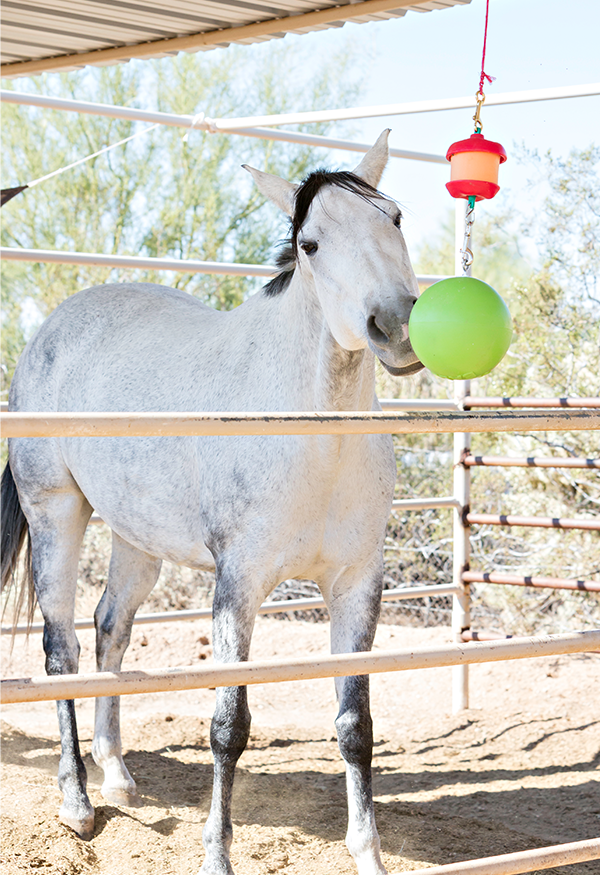Your Cart is Empty
FREE Economy Shipping on orders over $75
Menu

FREE Economy Shipping on orders over $75
How Equine Therapy Benefits You
September 01, 2023 3 min read
Equine Therapy is an innovative, experiential approach to therapy that involves horses in mental health treatment. Equine therapy has evolved over thousands of years. The first mention of using horses for therapy dates all the way back to ancient Greece. Today, horses, in combination with a licensed therapist, are still used to help patients on their journey towards better mental health. Equine therapy is effective for treating people experiencing anxiety, depression, trauma-related symptoms, ADHD, autism, dissociative disorders, addictions, and eating disorders.
Animal assisted therapy helps to reduce feelings of anxiety and depression on a physiological level. Animal assisted therapy has been shown to reduce cortisol, the stress hormone, lowers blood pressure, and releases oxytocin, a natural chemical that promotes feelings of positivity and connection. Horses have a unique sensitivity to people’s feelings. They can sense and respond to a patient’s emotions and can reflect those feelings back at the patient. This can be a big help when dealing with processing emotions in patients.
Equine therapy can provide many benefits in unique ways:
Improved Self Image and Confidence
Working with horses offers a unique way of interacting with another living being. For starters, a horse will not judge a person on their appearance or diagnosis, giving patients an unbiased participant in their interactions. Taking care of a horse, walking with them, grooming them, and working with them helps patients to establish a sense of purpose. In addition to physically caring for a horse, you need to emotionally care for them as well by being patient, assertive, and understanding. These interactions can help patients improve their self-image and increase their confidence as they deepen their connection with their horse over time.
Identifying Feelings
Identifying and coping with feelings is often one of the first steps when a person is struggling with mental health issues. By offering a unique ability to sense emotions, horses can essentially provide visual feedback of the patients emotions, allowing them to identify their feelings by seeing it in another being. If you are angry or aggressive around your horse, they may act stubborn. If you are anxious, they may become skittish or scared. Witnessing the reactions of their horse will help patients become self-aware of their feelings.
Communication Skills
Since horses are so receptive to human emotions, working with them is a great way to learn communication skills. Horses are great communicators and will let you know how they are feeling. Interacting closely with a horse allows people to see the horse’s responses through an objective lens. Patients can learn to recognize ways in which their perceptions may be misguided or ways they may be projecting their own issues onto others. Patients also learn impulse control. They need to be calm and patient to communicate effectively with their horse. Equine therapy can help to increase cooperation and emotional regulation when communicating.
Overcoming Fears
Horses are very large and very strong animals. Their strength and size can bring up unmet needs, fears, past trauma, and feelings of inadequacy or lack of control. Through guided interactions with a horse, patients can feel, tolerate, and process the emotions they feel. Equine therapy offers a safe environment for patients to face their fears and build confidence in their abilities to face and overcome challenges. Creating a connection with their horse can help them become more confident in their ability to connect with others and build a sense of trust.
Structure and Planning
When struggling with mental health issues, many people may avoid chores or responsibilities in their daily activities and eventually become too overwhelmed to deal with those responsibilities when they continue to grow. Working with a horse can help to reestablish a sense of routine and structure. Horses are reliant on people to take care of them, so patients must be responsible for the horse and their needs. This can help encourage them to reestablish structure in their own lives as well as they feel more competent and responsible when caring for their horse.
Horses offer a unique perspective on mental health treatment and a fun interactive way for patients to learn and grow on their journeys.
Want more? Click here for more fun and helpful content!
HAVING A JOLLY GOOD TIME?
Keep the good times going! Sign up to receive monthly treats directly to your inbox!

TAKE 10% OFF
Signup for emails and take 10% off your first order!

















